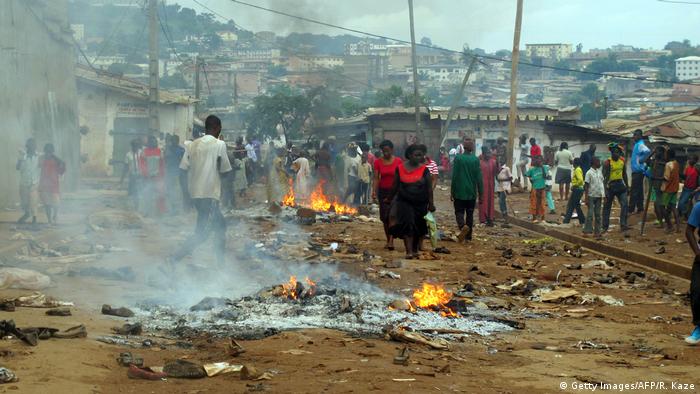
Cameroon used to be one of the most peaceful countries in Africa. Apart from being one of economic powerhouses in Africa thanks to its oil, fertile soil and peaceability, Cameroon seemed to, externally, be an idyllic example of the reunification of Africa. This is because of the union of francophone Cameroon and Anglophone South Western and North Western Provinces that formed the Republic of Cameroon, Shrimp Republic or Republique des Crevettes or Camarões as Portuguese referred it; thus the name. Apart from Cameroon, it is only Tanzania whose union, despite, sometimes, facing some brouhahas and bugaboos, has been going from strength to strength after many failed drastically. Nonetheless, this accolade is long gone thanks to the melting point the country is in after starting a self-destructive war. The country is currently bleeding to death as it faces very divisive and violent politics revolving around colonial dregs that, too, revolves around linguistic, regional and toxic nationalism as they were chaperoned by former colonial monsters, the British and French. According to the crisis.org, on 1 October 2017, tens of thousands of people began a peaceful march (holding a plant symbolising peace and chanting “no violence”) to proclaim the independence of Ambazonia (the name given by secessionists to their hypothetical state). Since then, the peaceful Cameroon the world knew cascaded to brutality and violence from both sides.
Ontologically, since gaining its independence, the Francophone, the majority, has treated Anglophones as second-class citizens in their country through imposing French on them while stifling English. The Deutche Welle (March 22, 2017) quotes Ben Shepherd of the London-based think-tank Chatham House, who has been to the region as saying that Anglophone Cameroonians have been marginalised so as to lack development aid and support to the degree that they feel they should have. Shepherd says that he knows a lot of English-speaking Cameroonian civil society and political organizations that have been systematically bilked out and marginalised from the business of running the state affairs for a long time.
Since this conflict started, hundreds of people have been killed while thousands displaced. Up until now, Nigeria hosts over 20,000 refugees from Cameroon (USNEWS, June 1, 2018) that used to be a refuge for refugees from neighbouring countries and others such as Chad, the DRC, the CAR, Sudan and Nigeria itself.
Thanks to the systemic gullibility, naivety, uppity and failure to underscore the importance and meaning of their independence and national building, Cameroonians are now at the Carrefour butchering each other pointlessly. The Anglophone and the francophone are at war threatening the unity of the country after the latter subjected the former to what I can call dialectal apartheid as weaponised by the sick and tired regime that’s ruled Cameroon since independence. One would wrongly think that Cameroonians would get it. They still expect the West to help them after the AU has terribly failed. Again, the same plaster saints they go to seeking them to reconcile them are the same that enacted the linguistic acrimony and dichotomy they are in. It is sad. Cameroonians know when they became Anglophone and francophone but not when they became Cameroonians. That is to say, Cameroonians themselves are doing dirty laundry for their former colonial monsters that, in one way or the other, cannot help them in anything but selling them weapons so that they can finish each other.
Thanks to colonial toxicity, Anglophone and francophone Cameroonians see each other as enemies while the actual enemy is a corrupt and recycled regime that ruled this country since independence; which is the enemy Cameroonians they need to fight. Since Cameroon acquired its independence over five decades ago, has been ruled by two presidents among who is the ailing incumbent, Paul Biya, who, like any dictator, has turned Cameroon into his private estate; he can misuse and squander as he deems fit. His regime is made of bankrupt, old and recycled person who has nothing to offer to the country except to milk it. What can an 85-year-old hetman do to the country after being power for over three decades and a half? For such an old guard, whatever undesirable happens to the country is okay given that he’s nothing to lose at this eleventh hour.
In sum, colonial acrimony-cum-division does not only exist in Cameroon but also in the African Union (AU) that is supposed to intervene. The AU, since its inception, has been embroiled in linguistic division, especially when it comes to voting. This is may speak to why since this mise-en-scene unfolded, the AU seems to, still, be in a slumber if behaving like a sitting duck. Nobody expects the AU to do a lot about this conflict given that itself has maintained and perpetrated the division of Africa that is adversative to its name. Like any divided entity, Cameroon faces linguistic division spiraling along the Anglophone and francophone axis. I think this is why the AU has failed to quickly and chip in to intercede and see to it that the two warring parties are reconciled.
Source: Citizen, June 20, 2018.


No comments:
Post a Comment